From Trapeze to Spring & Airbrake
Cherry Red Records in the UK will be releasing the third installment of Glenn Hughes’ Official Bootleg Box Set on July 31, 2020. It will contain 6 disks.
- CDs 1 & 2: Wulfrun Hall, Wolverhampton, November 17, 1995;
- CD3: Astoria 2, London, November 18, 1995;
- CD4: Esquires, Bedford, May 3, 2008;
- CDs 5 & 6: Spring & Airbrake, Belfast, October 9, 2010.
The usual disclaimers about bootleg sound quality apply. The box set can be preordered directly from the label.
Three archive Trapeze albums in expanded formats will be released on September 18: self-titled Trapeze, Medusa, and You Are The Music • We’re Just The Band.
Trapeze, originally released in May 1970, will be a 2CD affair, with the second disk containing
- Send Me No More Letters (UK single version)
- Send Me No More Letters (US single version)
- Across thte Water, Across the Sea (demo)
- Seafull (demo)
- New Life Again (demo)
- 40,000 Voices (demo)
BBC sessions 1969:
- Intro / Send Me No More Letters
- Another Day
- Send Me No More Letters
Live at Lafayette Club, Wolverhampton (Colour Me Pop 1969):
- Intro
- Magic Carpet Ride (Steppenwolf cover)
- Meet on the Ledge (Fairport Convention cover)
- Open My Eyes (The Nazz cover)
The artwork is augmented by an extended essay from music journalist Malcolm Dome based on interviews with Glenn Hughes & John Jones.
This can be preordered directly from the label.
Trapeze’s second album Medusa will be no less than a 3CD affair, with two full disks of bonus tracks (caveat: track listing on the label website is all wrong and appears to be copy’n’pasted from You Are The Music • We’re Just The Band reissue). The blurb describes bonus tracks as
This classic has been expanded with two bonus discs, packed with extras. It kicks off with a stereo edit and then a mono edit of the ‘Black Cloud’ single, followed by radio session versions of ‘Makes You Wanna Cry’ and ‘Medusa’. Disc Two finishes with an unreleased live show from the United States in March 1971, where the band had a growing following, thanks in part to the opportunity to tour America with mentors, The Moody Blues.
Disc Three features a second complete unreleased show from 1971, featuring all but two tracks from the “Medusa” LP.
The 3CD set includes a reproduction of original concert poster from the band’s archives. Liner notes are based on interviews with Glenn Hughes, John Jones, Trapeze’s original manager Tony Perry, Trapeze’s photographer David Rohl and Mel Galley’s brother and Trapeze co-writer, Tom Galley.
This item can be preordered directly from the label.
Trapeze third album You Are The Music • We’re Just The Band, originally released in 1972, now also appears as a 3DC set with two CDs full of bonus material.
CD2
- Coast to Coast (mono version)
- Good Love
- Dat’s It
Radio One In Concert 1973 (off the air recording)
- You Are the Music
- What Is a Woman’s Role
- Way Back to the Bone
- Your Love Is Alright
Dallas 1972
- Black Cloud
Houston 1972
- Way Back to the Bone
- You Are the Music
CD3
Houston 1972 (continued)
- Jury
- Seafull
- Your Love is Alright
- Medusa
- Black Cloud
- Touch My Life
- Keepin’ Time
The set includes extensive liner notes by Malcolm Dome based on interviews with Glenn Hughes, manager Tony Perry, producer Neil Slaven, Tom Galley and Rod Argent.
This item can also be preordered directly from the label.
Thanks to our editor emeritus Benny Holmström for the info.
![[hand]](/hs-pics/portraits/hands/mcbride1.jpg)
![[face]](/hs-pics/portraits/faces/glover2.jpg)

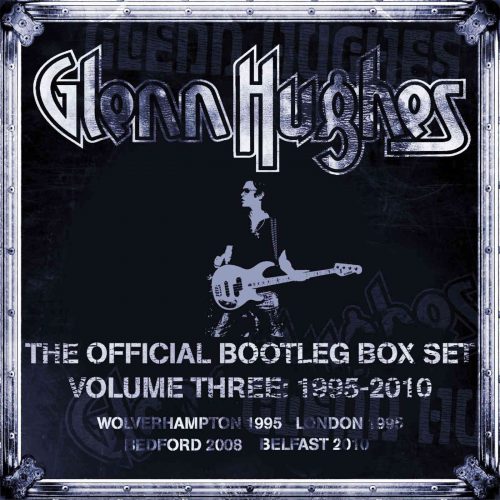
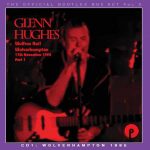
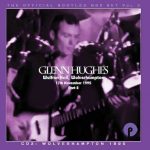
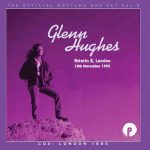
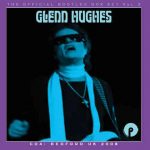
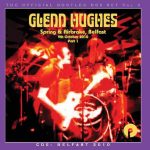
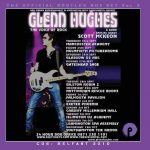
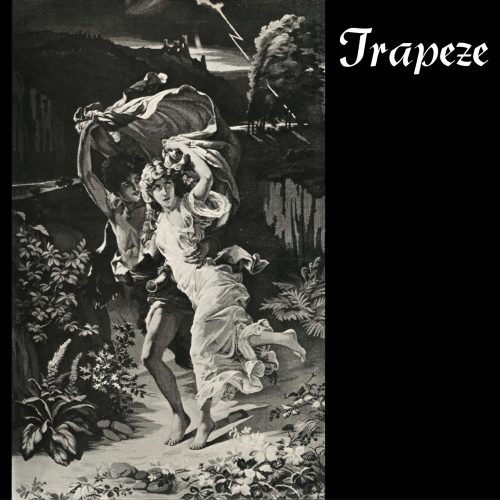
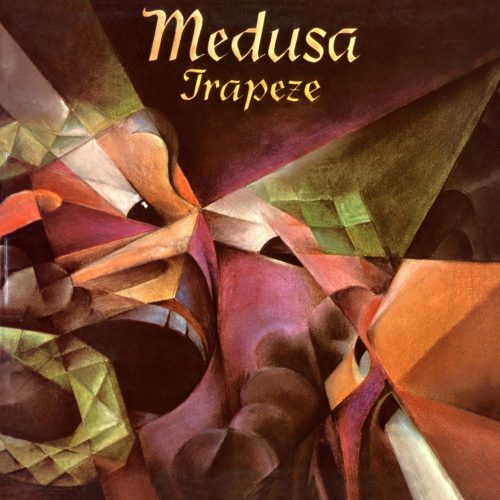
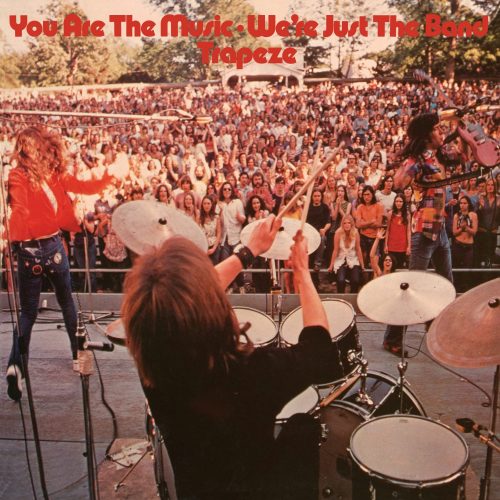
 Unauthorized copying, while sometimes necessary, is never as good as the real thing
Unauthorized copying, while sometimes necessary, is never as good as the real thing
Glenn Hughes completely overrated, a big mistake to let him sing in DP.
July 11th, 2020 at 23:31Wow – finally. Been waiting all these decades.
July 12th, 2020 at 02:56yawn!!!!
July 13th, 2020 at 21:44Last two are very good albums, first one stinks……AVOID. don’t waste your money on that one. Go get the first three Thin Lizzy albums much better.
July 14th, 2020 at 13:22Is it too much to ask to view albums in a historic context? That first album had Trapeze still finding their feet with a different line-up and the shadow of the Moody Blues looming over them (they were on Threshold, the Moody Blues label), Glenn was not yet the lead singer and only 16/17 years old.
As for the lauded first three Lizzy albums: Baby Face never got off the ground because Paice and Blackmore deemed at the time Lynott’s bass skills insufficient for them, while Glenn Hughes was hired by Purple for exactly the strength of his bass playing – Ritchie wanted someone who played in an Andy Fraser vein, the Free bassist.
July 15th, 2020 at 10:04If anything, Hughes’ contribution to Purple is underrated. Even if he had never sung a note, Burn, Stormbringer and CTTB would sound completely different without his pushy bass playing.
It’s interesting that people always complain about Glenn’s singing (which you may like or not like, I for one do), yet no one ever says anything about his bass playing or why someone like Joe Satriani would ask him to play all bass tracks on his last album. In fact no one says anything about his bass playing at all – it’s as if it is totally irrelevant who plays bass with Purple irrespective whether it’s Simper, Glover or Hughes (when all three have or had a huge influence on how Purple sounds and sounded).
I’ve been to a Purple gig where Roger couldn’t play because of a knee surgery – the sound of the band was barely recognizable without him though Nick Fyffe played nothing wrong. That’s how important he is. And that is how important Glenn and Nick were too.
July 15th, 2020 at 16:53@ 5, I viewed and found to be to sleepy and boring, like taking grandma to the opera. As far as saying, glenn’s voice was still maturing as was his bass playing. Glenn’s solo albums start the same way. Fair as to “Play Me Out” Steve Wonder flavour, To now Heavy, to soul, to rock.
July 16th, 2020 at 12:23I love Glenn but I m not going to buy secondrate bootlegs of shows I can easily download on the Net.
I always wanted a good sounding recording of the ADDICTION tour though.
I really loved the 94-98 shows.
July 16th, 2020 at 12:56The guy is good.
https://www.youtube.com/watch?v=SUxxpPt250A
July 16th, 2020 at 16:59Uwe @ 6 and @ 9…..yes I agree totally – Glenn Hughes is criminally under-rated as a bass player. His voice seems to get most of the attention while his bass skills are hardly ever mentioned.
July 16th, 2020 at 20:29We need a testimonial!
https://www.youtube.com/watch?time_continue=1&v=F2eZ2aHzmyo&feature=emb_logo
July 17th, 2020 at 17:07The fact is that Glenn Hughes was originally scouted by Blackmore, Lord and Paice in 1972 /73 in relation to his bass playing skills in Trapeze. Singing for Purple was a distant second consideration for them. To have 3 virtuoso musicians from Deep Purple scout a 21 year old bass player speaks volumes as to his huge talent on that instrument. Zoom ahead 45 years later and seeing Glenn Hughes recruited by the guitar virtuoso extraordinaire Joe Satriani, to play bass on his album, again speaks volumes of Glenn’s fantastic bass playing skill.
July 19th, 2020 at 00:26Finally someone agrees with me, danke DeeperPurps!
Whenever Glenn is discussed here, you get the impression via most postings that everything he did with Purple was either crap or harmful to them. His bass playing is never mentioned nor his songwriting contribution, his singing is reduced to some of his excesses (yes, they do exist, but he wasn’t the only Purple guy who could be excessive on stage, Mk II was a behemoth of live excesses!), when in fact Burn (the album) when it came out in early 1974 featured a twin attack lead vocal sound no one had heard before in a hard rock setting and which immediately established Mk III’s own identity.
People also never mention here that it was Glenn’s contrapunctual bass playing that tickled great things out of Little Ian who considerably upped his ante from 1973-77 and was then possibly at the zenith of his drumming as a young man. It’s telling that following the demise of Mk IV, Ian Paice co-founded PAL and chose – of the myriad bass players who applied – Paul Martinez as a bass player whose style was very similar to Glenn’s (and quite removed from Roger’s). Little Ian was more challenged with Glenn’s bass playing and it forced/inspired him to leave his comfort zone more often, with great results in my ears because he is such a talented drummer.
Rant over!
Uwe
(Chairman of the GHRAS – Glenn Hughes Re-Appreciation Society -) ; – )
July 20th, 2020 at 17:25Uwe @ 13, 100% agreed. Burn has always been one of my top 3 Purple albums. Way back then, to my young ears, Glenn Hughes’ bass playing was truly something to behold. In the live setting, especially on You Fool No One, it was absolutely sublime. I credit Glenn for opening up my appreciation for other rock music with a funk element in it: Living Colour, Mother’s Finest, Funkadelic, and even Miles Davis’ various combos during his early-mid 1970’s electric era. I have seen him live up close several times – he gives his bass’ a real workout every show, and makes it look so easy, which it’s not. A very talented man and great singer – songwriter too.
July 20th, 2020 at 21:27When I first heard Made in Europe, I thought “Oh, Glenn and Ritchie have switched roles, DP have a lead bassist now!” ; – ) His bass playing on that last Mk III tour is that forceful and dominant, while Ritchie became more and more introverted in his rhythm guitar and solo contributions, his mind was obviously already “Over the Rainbow”. Which of course goes to show: If you give Glenn enough room, he’ll take it – without asking twice!!! A shrinking violet he is not.
But whether his brand of funk rock is your taste or not, he deserves more credit for his abilities and talents. Never mind that he is his own worst enemy by not sticking with any project for long.
July 22nd, 2020 at 18:03For Glenn’s bass playing I can cite no better example than “You Fool No One” on Live in London when the guitar solo starts. On the old vinyl bootleg I used to turn down one channel to bring the bass to the fore. Sublime. I remember a friend had some of the Iron Maiden guys round (late 1979) and Steve Harris being blown away by this.
July 23rd, 2020 at 11:48Gentlemen @ 15 & 16, yes my sentiments exactly! Hughes was on fire in that last year of Purple Mark III – those recordings of his playing, and of the band around him are magnificent. I prefer Glenn’s harder rock albums – 2 standouts for me are his 1996 Dep Sessions with Tony Iommi, and his Soul Mover album circa 2005.
Speaking of under-rated rock bassists, ever listen to Mel Schacher of Grand Funk Railroad? He does some really nice work on their Red album, several other tracks throughout their catalogue and has a dominant sound in their live recordings . He seems to have a lead-bass approach. Uwe would be interested in knowing if you have heard him?
Another very fine bassist is Justin Chancellor of Tool….a master.
July 23rd, 2020 at 14:31https://www.youtube.com/watch?v=q5pESPQpXxE
I JUST LOVE Grand Funk Railroad, have all their albums and Mel’s mountainous bass playing was pivotal for them, he drove the band. Never as elegant as DP or – to pick a Yank outfit – cerebral as BÖC, there was something earthy and organic to them. And I actually did like Mark Farner’s guitar playing and singing, though he was never a critic’s choice.
There is a whole bunch of bassists in established rock bands that never got the recognition they deserved Geezer Butler, Martin Turner, Jim Lea, Gary Thain, Trevor Bolder, Bob Daisley, John Deacon, Neil Murray, John McCoy, John Gustafson, Tony Sales (Iggy Pop and Tin Machine), Charlie Tumahai (Be-Bop Deluxe). They all left their marks on me.
People tend to think of the usual suspects when they think of rock bassists, i.e. Jack Bruce, John Entwistle and Chris Squire.
Even Sir Paul is criminally underrated as a bassist. Famous as a Beatle, singer and songwriter, ignored as a bassist!
July 24th, 2020 at 15:13BINGO!! Uwe @ 18!!
Yes, Mel has always impressed me with his hard-driving funky bass lines – he filled in so much space between Brewer’s drums and Farner’s guitar. But, GFR have always been dissed by the critics and are so criminally under-rated….I simply don’t understand the hostility towards them – it’s very unfair.
There is much to enjoy in GFR’s entire catalogue. Something I find when I listen to the “We’re an American Band” album with their addition of Craig Frost on keys, there are a couple of tracks on it that sound quite Purplesque (Mark III Burn album-style).
For a couple of the other bassists you mention, yes Geezer Butler!! I have always enjoyed his slinky, serpentine style of bass playing. And of course Bob Daisley is another great player – how could he not be!? 🙂 Ritchie Blackmore recruited him, that speaks volumes right there.
Getting back to Grand Funk Railroad, lots of people call for them to be inducted into the RRHOF but I feel that is probably unlikely……..Whereas Deep Purple were unfairly ignored by the critics and the Hall for decades, there is outright critical antipathy towards GFR. Very odd, as they represent the epitome of the small town garage band who plied their trade with a huge work ethic, became better musicians through the years, composed their own songs (some outright classics), won over the hearts of millions; etc; yet have never received any proper credit nor accolades from the critics. Very unfortunate.
Listening to GFR again recently on a live track such as Inside Looking Out – between Schacher’s hard funky bass playing and Farner’s gritty, soulful vocals; I couldn’t help but think of some parallels to the sound of live Mark III with Glenn Hughes!
https://www.youtube.com/watch?v=NxcOxvEsE_Y
July 24th, 2020 at 16:27Farner and Hughes (though the latter has a far greater range) share that same raw intensity in their singing which you either dig or hate. The commonalities don’t stop there, Hughes is of course a Brummie with all that Northern Soul influence, the GFR-guys stem from Flint, Michigan, basically a Detroit suburb (anyone from Flint will hate me for having said that!) and were reared on Motown. So they are all from industrial centers with a strong black music presence. You could always hear that black music vibe in GFR (and of course in Trapeze), you can even hear it in that other Detroit-son’s music: Ted Nugent. If you ignore the inane idiot he has become, a Ted Nugent Show shares that same slightly frantic-feverish energy a James Brown gig possessed. And if you tape his big mouth shut (as you should), Uncle Ted is very much a rhythm & blues influenced player, not so much Heavy Metal at all.
Did GFR’s and Purple’s paths ever cross in the US at all? As progenitors of stadium rock, they should have attracted a similar US audience.
And btw: When GFR “purplelized” their sound with the addition of Craig Frost, I liked them so much the better for it. He really colored up their sound. I prefer the live album with him.
July 26th, 2020 at 15:31Uwe @20. Agreed – both Mark Farner and Glenn Hughes have those passionate, soulful singing styles, but I too give the edge to Hughes in power, range and versatility.
Another great Detroit-area musician schooled in R&B, soul, funk and straight-ahead rock and roll is Bob Seger and his Silver Bullet Band. Interesting GFR links to Bob: Don Brewer played drums for a couple years in his band, and Craig Frost has been on keys for several years with him also.
As for Terrible Ted, yes too bad he just doesn’t shut up and play his guitar. I have seen him in concert and he puts on a good show – “Stranglehold” is his tour de force – great groove and soloing. And for a Deep Purple / Rainbow family reference…..when I saw him in California a few years ago, his bass player was Greg Smith (of Ritchie Blackmore’s Stranger In Us All era).
I have never seen any references to Grand Funk and Purple playing the same venues together. In the mid-70’s they were both top selling acts, so I imagine it would have been difficult to pick who would be the headliner. I am surprised that GFR did not play at CalJam – I would have thought they would be a natural to include on that bill.
I agree, the Caught in the Act live album from their 1975 tour captures GFR at their absolute prime. Not long after that the band started to crumble.
Interesting quote back in the day from Ritchie Blackmore about them: “I have never met one person who likes Grand Funk” (in the context of why certain bands sell so well in the USA while others do not).
July 27th, 2020 at 01:07!
As for Ritchie’s comment, I guess it’s because he never met me!! 🙂 I liked GFR a lot. In fact my very first and second 45 rpm records that I had back in 1973 / 74 were Smoke on the Water, and We’re an American Band.
Guilty as charged, Bob Seger is another favorite …
July 28th, 2020 at 22:47Just listening to CTTB once again, that album contains cracker after cracker, not a weak track on it! And it has matured so well. Which you can’t say about every Purple album.
Hughes is really on fire basswise (amazing, considering how the sessions were fraught with his raging addiction und Bolin even had to dep for him on Coming Home).
I’m curious how much they will get out of those old Trapeze recordings; those albums are in dire need of a decent remaster, better yet a contemporary remix.
July 29th, 2020 at 19:19Yes CTTB is a fine album, although Jon Lord did distance himself somewhat from the Bolin era by saying it shouldn’t have been called Deep Purple. I admit that when CTTB first came out in 1976 I was extremely disappointed in it – to my young ears it simply wasn’t Deep Purple. To me back then, Blackmore WAS Purple.
However about 20 years ago I remember hearing Billy Cobham’s Spectrum album for the very first time and was completely blown away by the guitar work. I checked the liner notes and saw Tommy Bolin’s name – I was hooked. I tracked down several of his other albums and completely revised my opinion of his playing. I then picked up a copy of CTTB and really liked it – it sounded so fresh. I guess after having grown older, acquiring a wider palette of musical tastes, etc, I was open to hearing Purple played in a different way (ie: not necessarily by Blackmore).
As for Trapeze’s albums, I haven’t dusted those off for a long time. I do seem to recall that the studio sound on a couple of them was quite muddy. I imagine the original tapes would be needed for a proper remaster.
July 29th, 2020 at 23:59These remasters are great btw – never have the Trapeze albums sounded so good, even the debut – and the additional material is of much better quality than could be reasonably expected. Where was all this stuff during all those decades?
September 24th, 2020 at 10:40The remasters are absolutely great. And the bonusmaterial is very fine mostly in very good quality.
I’m really happy that I bought these, although I have the original vinyls on Threshold Records.
“Medusa” and “You Are The Music.. ” belongs to the most important early hardrock LP’s with heavy drums, a guitar that sometimes sound like AC/DC and sometimes like Pink Floyd. Mel Galley was amazing. And very young Glenn Hughes’ bassplaying and singing is extraordinary.
Mel Galley and Dave Holland R.I.P.
For the first Album (Trapeze 1970) – it is very different, but a great peace of music. Not such heavy, but a masterpeace with great organ and strings, too. It’s like a “Book Of Taliesyn” for Deep Purple and reminds me on the early Uriah Heep.
The Bonus to that album contains four unheard demos in TOP Quality.
The Demo version of “Seaful” ist VERY different to the “Medusa” version. With much Hammond instead of guitar. It is brillant!!!!
I’m really happy to bought these treasures an I hope that they will also re-release the later Trapeze recordings with Mel Galley and Peter Goalby singing.
And Uwe is right. Glenn’s bassplaying is extraordinary.
October 7th, 2020 at 18:15